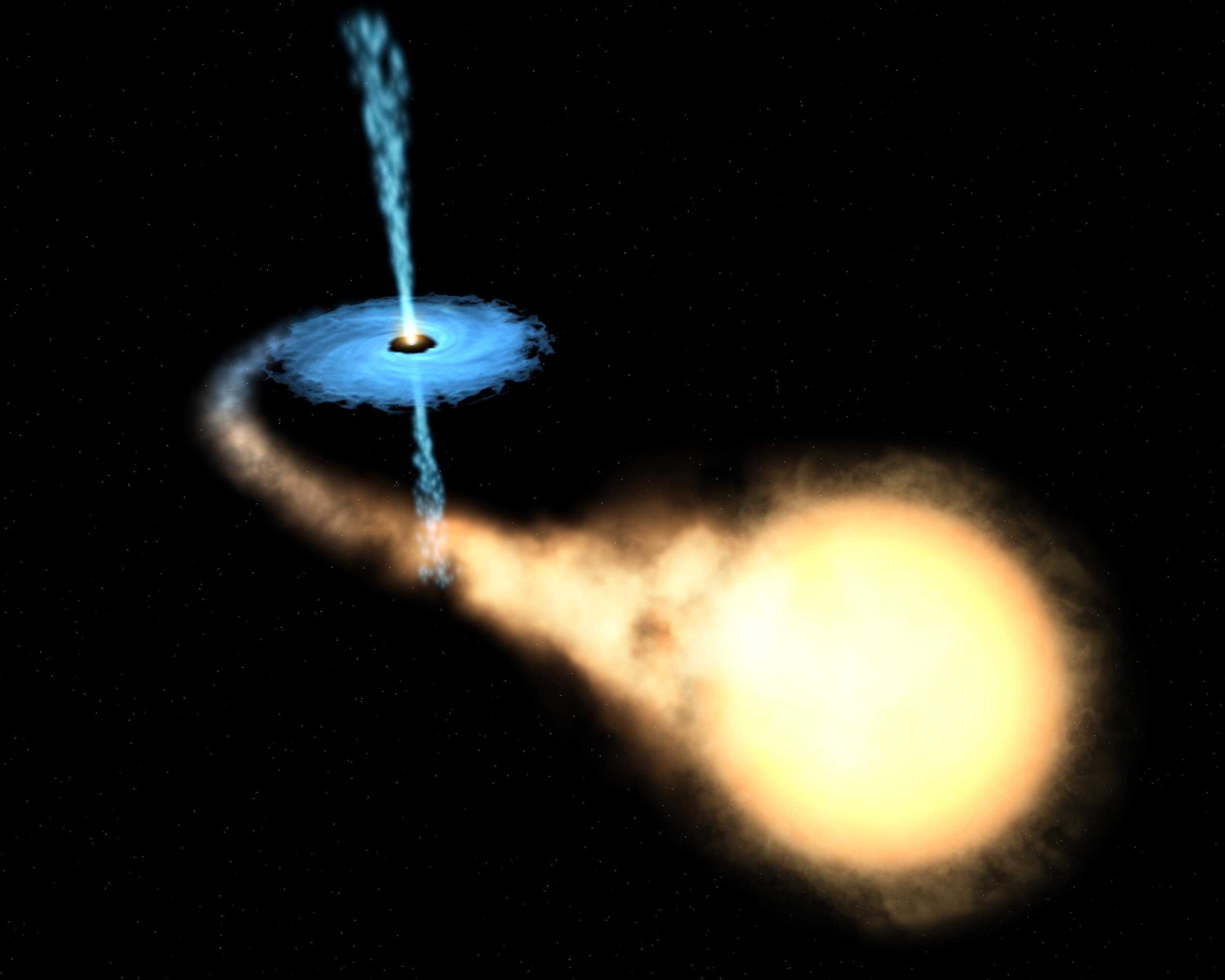Introduction to my Research Interests
My primary research interest is the study of kinetic plasma turbulence using high-performance computation, in particular using AstroGK, a new gyrokinetic simulation code for astrophysical plasmas.

Turbulence plays a critically important role in the evolution of many plasmas, from causing diminished confinement times in fusion plasmas to mediating the transfer of the gravitational potential energy released in black-hole accretion disks (see Artist's Depiction at right) to small scales where it may be deposited as plasma heat. Many laboratory, space, and astrophysical plasmas support turbulence at scales on which collisions are weak—such systems require a kinetic description to capture important physical effects, in particular the dissipation of the turbulent fluctuations and the deposition of the dissipated energy as heat. The study of kinetic plasma turbulence represents a new frontier at the intersection of plasma physics, space physics, and astrophysics.
The formidable problem of developing a general understanding of kinetic plasma turbulence and its dissipation demands a multifaceted approach: theoretical models may be challenged by exploiting the availability of both in situ satellite measurements of kinetic turbulence in the near-earth solar wind and detailed measurements of turbulence in laboratory experiments. Nonlinear kinetic simulations of plasma turbulence, requiring the use of high-performance computing resources, provide an invaluable bridge between the idealized simplicity of theoretical models and the confounding complexity of turbulent plasmas in nature. My research program at the University of Iowa aims to tackle kinetic plasma turbulence with simultaneous efforts on many complementary fronts:
- High-Performance Nonlinear Gyrokinetic Simulations
- Development of Analytical Models
- Novel Analysis Methods for Satellite Data
- Interpretation of Laboratory Experiments
Recent Talks
Princeton Plasma Physics Laboratory Heliophysics Seminar
14 AUG 2020 (via Zoom)